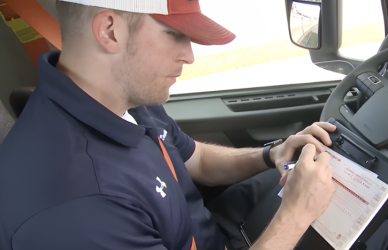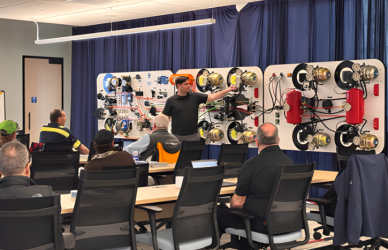In a 7-0 vote, St. Paul’s City Council has chosen to prohibit parking for semis, box trucks, and even some RVs overnight. This decision sends a clear message that overnight parking in the city center is no longer allowed. An inconvenient ruling for the men and women who deliver more than 72% of America’s goods and materials.
“Our streets just aren’t built for semitrailers, but at the same time, these are workers,” council member Nelsie Yang reportedly said. “We need cities to be working together to find solutions.”
St. Paul’s decision follows in the footsteps of neighboring Minneapolis, which already has an overnight truck parking ban in place.
This trend is not isolated to the Twin Cities, as cities like New York have also begun implementing similar bans. In fact, New York Mayor Eric Adams turned the towing of a trucker’s big rig into a photo-op, garnering widespread media attention. However, the Minnesota Trucking Association (MTA) has expressed their collective frustration with these restrictions.
“The economy is struggling, small trucking companies are closing their doors and the trucking industry is facing a shortage of qualified drivers. At a time when we should be removing barriers, this proposed ordinance erects new ones,” an MTA press release states. “The proposed ordinance will reduce overall efficiency and cut into precious available driving hours for truck drivers forced to park outside of St. Paul. It is a simple fact that to meet narrow pick-up and delivery windows, trucks need to park close to their St. Paul customers.”
City politicians pushed the new measure through despite objections while failing to consider the consequences for truck drivers.
The lack of safe parking options for truckers is a growing problem, with 98% of drivers regularly facing difficulties finding a secure place to park. This puts drivers at risk and can result in costly fees for overnight parking. In St. Paul, for example, drivers can pay up to $20 per night for an unlit dirt lot or over $2,000 annually.
The upcoming ban will impact over 500 truck drivers in the area, but there are currently no plans to increase safe parking options before it takes effect on Jan. 1, 2024.
Source: TheTruckersReport











